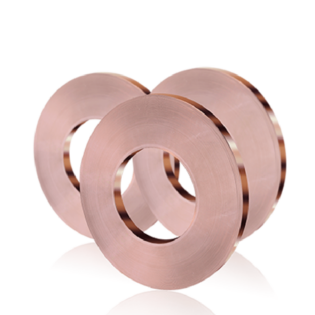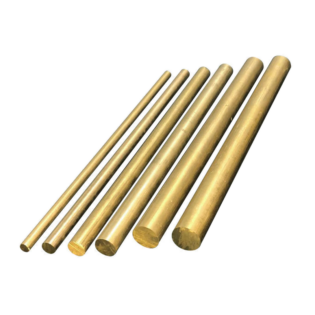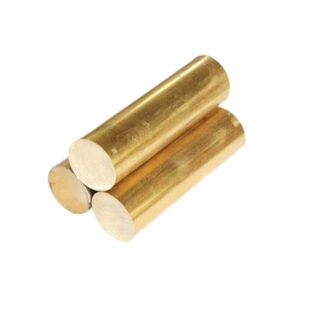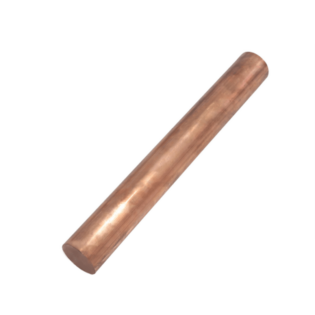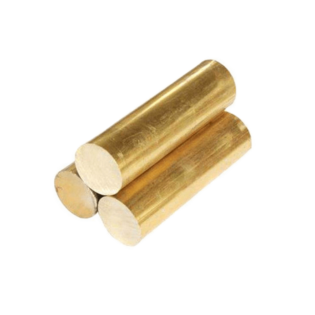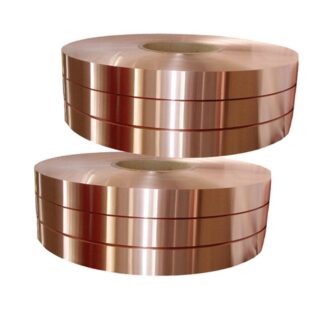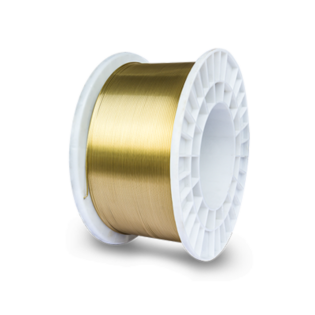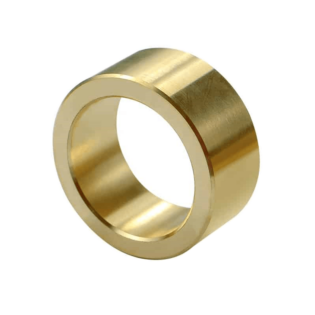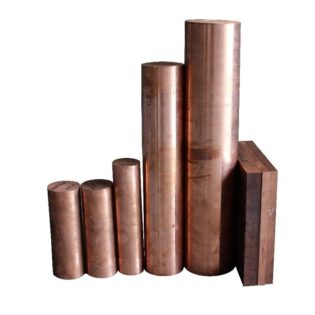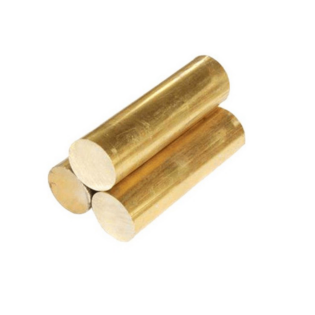UNS C69400 Silicon Red Brass
MachinabilityThe machinability rate of UNS C69400 silicon red brass alloys is 30.
WeldingSoldering, brazing, oxyacetylene welding, spot welding, seam welding, and butt welding are considered as suitable welding processes for UNS C69400 alloy.
ForgingUNS C69400 alloy has a hot forgeability rating of 80 with the recommended hot working temperature ranging between 649 and 871°C (1200 and 1600°F).
Hot WorkingThe hot working capacity of UNS C69400 silicon red brass alloy is excellent.
Cold Working
The cold working capacity of UNS C69400 is poor.
AnnealingThe annealing temperature of UNS C69400 silicon red brass alloy is between and 427 and 649°C (800 and 1200°F).
ApplicationsUNS C69400 silicon red brass alloy is used in heavy-duty mechanical components such as bearings, and used for pump components and valve stems.
C69400 Product description: Silicon red brass
C69400 brass is a brass formulated for primary forming into wrought products. Cited properties are appropriate for the H04 (full hard) temper.
It has a moderately low thermal conductivity among wrought brasses. In addition, it has a moderately low electrical conductivity and a moderately low melting temperature.
The graph bars on the material properties cards below compare C69400 brass to: wrought brasses (top), all copper alloys (middle), and the entire database (bottom). A full bar means this is the highest value in the relevant set. A half-full bar means it’s 50% of the highest, and so on.
Typical uses
Industrial: valve stems
Similar or equivalent specification
| CDA | ASTM | SAE | AMS | Federal | Military | Other |
|---|---|---|---|---|---|---|
| C69400 | B371 B371M |
Chemical composition
| Cu%1 | Pb% | Zn% | Fe% | Si% | |||||||
|---|---|---|---|---|---|---|---|---|---|---|---|
Chemical composition according to ASTM B371/B371M-19 1Cu value includes Ag. Note: Cu + sum of named elements, 99.5% min. Single values represent maximums. | |||||||||||
| 80.00- 83.00 | 0.30 | Rem. | 0.20 | 3.50- 4.50 | |||||||
Machinability
| Copper alloy UNS No. | Machinability rating | Density (lb/in3 at 68 °F) |
|---|---|---|
| C69400 | 30 | 0.296 |
Mechanical properties
C69400
H04 HARD
Size range: up to 1″ inclusive
| Tensile strength, min | Yield strength, at 0.5% extension under load, min | Elongation, in 4x diameter or thickness of specimen, min | Rockwell “B” hardness | Remarks | ||
|---|---|---|---|---|---|---|
| ksi | MPa | ksi | MPa | % | typical BHN | |
| 80 | 550 | 40 | 250 | 15 | 95 | |
Size range: over 1″ to 2″ inclusive
| Tensile strength, min | Yield strength, at 0.5% extension under load, min | Elongation, in 4x diameter or thickness of specimen, min | Rockwell “B” hardness | Remarks | ||
|---|---|---|---|---|---|---|
| ksi | MPa | ksi | MPa | % | typical BHN | |
| 75 | 515 | 35 | 241 | 15 | 95 | |
Size range: over 2″
| Tensile strength, min | Yield strength, at 0.5% extension under load, min | Elongation, in 4x diameter or thickness of specimen, min | Rockwell “B” hardness | Remarks | ||
|---|---|---|---|---|---|---|
| ksi | MPa | ksi | MPa | % | typical BHN | |
| 65 | 450 | 35 | 241 | 15 | 95 | |
Physical properties
Physical properties provided by CDA | |||||||||||
| US Customary | Metric | ||||||||||
|---|---|---|---|---|---|---|---|---|---|---|---|
| Melting point – liquidus | 1685 °F | 918 °C | |||||||||
| Melting point – solidus | 1510 °F | 821 °C | |||||||||
| Density | 0.296 lb/in3 at 68 °F | 8.19 gm/cm3 at 20 °C | |||||||||
| Specific gravity | 8.19 | 8.19 | |||||||||
| Electrical conductivity | 6.2% IACS at 68 °F | 0.04 MegaSiemens/cm at 20 °C | |||||||||
| Thermal conductivity | 15 Btu/sq ft/ft hr/°F at 68 °F | 25.98 W/m at 20 °C | |||||||||
| Coefficient of thermal expansion 68-572 | 11.2 · 10-6 per °F (68-572 °F) | 19.3 · 10-6 per °C (20-300 °C) | |||||||||
| Specific heat capacity | 0.09 Btu/lb/°F at 68 °F | 377.1 J/kg at 20 °C | |||||||||
| Modulus of elasticity in tension | 16000 ksi | 110310 MPa | |||||||||
Fabrication properties
Fabrication properties provided by CDA | |||||||||||
| Technique | Suitability | ||||||||||
|---|---|---|---|---|---|---|---|---|---|---|---|
| Soldering | Excellent | ||||||||||
| Brazing | Excellent | ||||||||||
| Oxyacetylene welding | Good | ||||||||||
| Spot weld | Good | ||||||||||
| Seam weld | Good | ||||||||||
| Butt weld | Good | ||||||||||
| Capacity for being cold worked | Poor | ||||||||||
| Capacity for being hot formed | Excellent | ||||||||||
| Forgeability Rating | 80 | ||||||||||
| Machinability rating | 30 | ||||||||||
Thermal properties
Thermal properties provided by CDA *Temperature is measured in Fahrenheit. | |||||||||||
| Treatment | Minimum* | Maximum* | |||||||||
|---|---|---|---|---|---|---|---|---|---|---|---|
| Annealing | 800 | 1200 | |||||||||
| Hot treatment | 1200 | 1600 | |||||||||
Common fabrication processesForging, screw machining
Common fabrication processes provided by CDA

